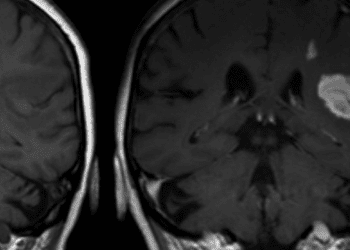[Featured] Statins associated with reduction in cancer-related mortality by 15% in nationwide Danish study
Image: CC/Sbrools
Key study points:
1. Within the cancer patient population statin drugs were linked with a reduction of all-cause mortality by 15% (95% CI, 13-17) when actively taking statins prior to and after diagnosis.
2. The relationship of decreased cancer-related mortality and statin drugs appears dosage-independent.
Primer: Cholesterol, produced via the HMG-CoA reductase pathway, is an essential element in the maintenance of the mammalian cell membrane. It is primarily known for its establishment of membrane permeability and fluidity, along with being a precursor to steroid hormone biosynthesis. However, more recent basic research has established multiple new functions for cholesterol and its metabolites within mammalian biology. Scientists have now described roles for the HMG-CoA reductase pathway in protein production, protein prenylation, and cell growth and signaling. Specifically, the HMG-CoA reductase pathway has been found to be upregulated in tumor cells whose genomes feature mutations of the TP53 gene, a locus that has been found to be abnormal in half of human cancers. It has been hypothesized that mutated p53 can exert gain-of-function activities at sterol gene promoters. Indeed, in experiments where breast cancer cells harboring the p53 mutation were treated with statins, significant improvements occurred in both tumor phenotype and morphology. However, the clinical role of statins in cancer incidence, management, and prevention of recurrence remains controversial within the medical community.
To further elucidate the relationship between statin use and cancer mortality, the authors designed a retrospective study. They hypothesized that statin use prior to and after a cancer diagnosis may be associated with reduced mortality.
Background reading:
1. Mutant p53 Disrupts Mammary Tissue Architecture via the Mevalonate Pathway
2. Statins and cancer prevention
3. Statin Prescriptions and Breast Cancer Recurrence Risk: A Danish Nationwide Prospective Cohort Study
This [retrospective cohort] study: In this retrospective study, 295,925 patients of age 40 years or older diagnosed with cancer between 1995 and 2007 were identified in the Danish Civil Registration System. All patients were followed until December 2009 representing an estimated 1,072,503 person-years of follow-up. Database and pharmacy records found 18,721 of these patients used statins routinely until their diagnosis of cancer while 277,204 were not prescribed statins or other cholesterol-lowering medications.
Death from any cause (hazard ratio 0.85; 95% CI, 0.83- 0.87; P<0.001) and death from cancer (hazard ratio 0.85; 95% CI, 0.82–0.87; P<0.001) were lower in the group treated with statins. Further, statins reduced all-cause mortality by 15% (95% CI, 13-17) in a dose-independent manner for those who took the medication regularly.
In sum: This study identified a 15% reduction in all-cause mortality amongst patients with a cancer diagnosis who had been actively taking a statin prior to and after their diagnosis. In addition to statins lowering cholesterol and preventing cardiovascular disease, this study may represent a significant new therapeutic use for one of the most widely prescribed classes of drugs. However, there are a number of limitations to this study. While the investigators obtained data from the Danish Civil Registration System, a sample representative of the country’s entire population, the results of this study may not be generalizable to underrepresented patient groups and to populations in other nations. Furthermore, critical patient information such as smoking history and smoking-cessation were absent from the study and may represent possible confounders. Additionally, there is no information on what other prescription medications, therapies, and over-the-counter drugs the patients were using.
There are several paths forward that will help address critical questions. First, randomized-control clinical trials are needed to prospectively evaluate the efficacy of statin usage in reduction of all-cause mortality after the diagnosis of cancer. Second, more extensive basic research is needed to evaluate the role of the HMG-CoA reductase pathway and its metabolites in cancer. Third, the relationship between drug dosage and reduction in all-cause mortality in this cancer population will require scientific verification.
Click to read the study in NEJM
Click to read an accompanying editorial in NEJM
By [ME] and [MK]
© 2012 2minutemedicine.com. All rights reserved. No works may be reproduced without written consent from 2minutemedicine.com. DISCLAIMER: Posts are not medical advice and are not intended as such. Please see a healthcare professional if you seek medical advice.




